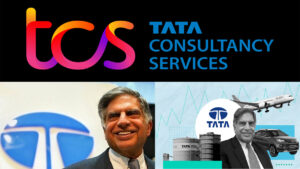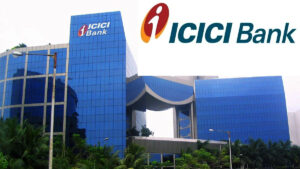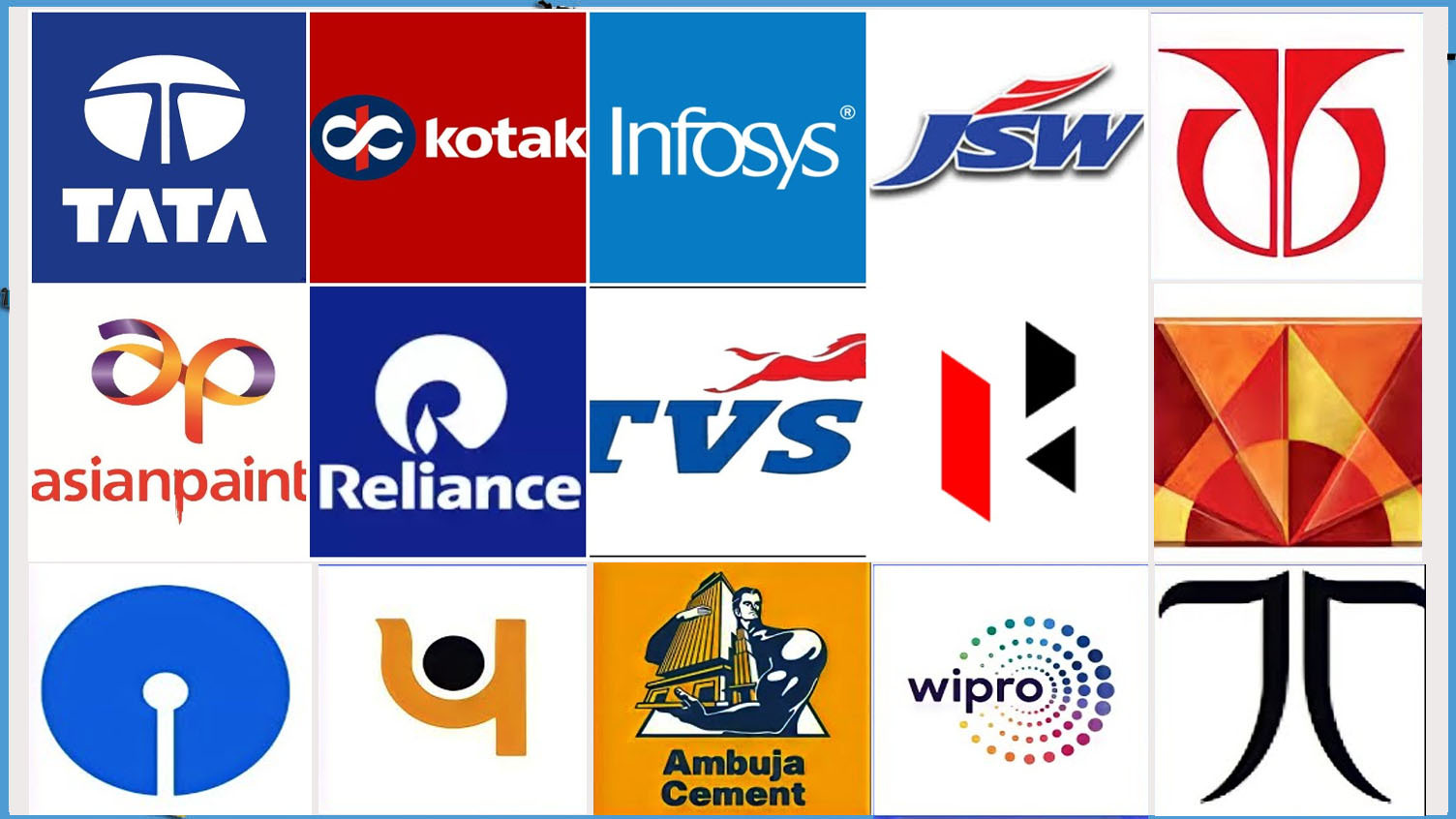TOP COMPANIES IN INDIA BY MARKET CAPITALISATION
Ranking of Top 50 Companies in India.
| Rank | Company Name | 52 wk High | 52 wk Low | Market Cap (Rs. cr) |
|---|---|---|---|---|
| 1 | Reliance Industries Ltd | 2,855.00 | 2,180.00 | 1,633,989.36 |
| 2 | TCS | 3,699.00 | 3,070.30 | 1,306,720.43 |
| 3 | HDFC Bank | 1,757.80 | 1,460.55 | 1,236,756.52 |
| 4 | ICICI Bank | 1,021.00 | 796.1 | 712,920.64 |
| 5 | Infosys | 1,620.00 | 1,215.45 | 597,247.68 |
| 6 | HUL | 2,768.50 | 2,393.00 | 587,879.48 |
| 7 | Bharti Airtel | 1,046.35 | 736.2 | 570,526.62 |
| 8 | ITC | 499.6 | 325.35 | 567,146.12 |
| 9 | SBI | 629.65 | 499.35 | 547,391.07 |
| 10 | LIC India | 810 | 530.2 | 508,087.07 |
| 11 | Larsen | 3,430.00 | 2,050.25 | 472,378.94 |
| 12 | Bajaj Finance | 8,190.00 | 5,487.25 | 446,089.06 |
| 13 | HCL Tech | 1,387.00 | 1,011.60 | 369,031.32 |
| 14 | Kotak Mahindra | 2,063.00 | 1,644.20 | 363,768.00 |
| 15 | Axis Bank | 1,151.50 | 814.25 | 344,748.46 |
| 16 | Adani Enterpris | 4,189.55 | 1,017.10 | 325,305.02 |
| 17 | Maruti Suzuki | 10,930.00 | 8,076.65 | 324,329.84 |
| 18 | Titan Company | 3,646.75 | 2,268.90 | 316,588.98 |
| 19 | Asian Paints | 3,566.90 | 2,686.15 | 308,036.78 |
| 20 | Sun Pharma | 1,257.40 | 922.55 | 291,903.09 |
| 21 | NTPC | 292.3 | 161.2 | 281,009.38 |
| 22 | UltraTechCement | 10,040.00 | 6,605.45 | 279,733.06 |
| 23 | Bajaj Finserv | 1,724.30 | 1,216.10 | 267,354.07 |
| 24 | Avenue Supermar | 4,225.00 | 3,292.65 | 259,489.57 |
| 25 | ONGC | 205.75 | 139.2 | 242,673.59 |
| 26 | Nestle | 25,240.00 | 17,888.00 | 239,809.03 |
| 27 | Tata Motors | 727.5 | 375.5 | 237,997.72 |
| 28 | Adani Ports | 1,082.95 | 394.95 | 225,594.11 |
| 29 | Adani Green Ene | 2,185.30 | 439.35 | 222,944.65 |
| 30 | Power Grid Corp | 236.85 | 153.34 | 218,750.20 |
| 31 | Wipro | 443.6 | 351.85 | 217,697.44 |
| 32 | Coal India | 362.55 | 207.7 | 212,552.50 |
| 33 | JSW Steel | 862.6 | 649.75 | 205,956.13 |
| 34 | M&M | 1,710.45 | 1,124.00 | 203,727.33 |
| 35 | Adani Power | 589.3 | 132.55 | 194,158.31 |
| 36 | Hindustan Aeron | 4,180.00 | 1,767.95 | 184,922.98 |
| 37 | Bajaj Auto | 6,328.15 | 3,522.00 | 177,015.29 |
| 38 | LTIMindtree | 5,820.80 | 4,120.00 | 167,337.40 |
| 39 | IOC | 122.5 | 72.35 | 166,842.43 |
| 40 | DLF | 677.25 | 336.55 | 165,746.87 |
| 41 | Tata Steel | 134.85 | 101.6 | 159,865.39 |
| 42 | Jio Financial | 278.2 | 204.65 | 150,858.73 |
| 43 | HDFC Life | 710.6 | 457.95 | 149,051.46 |
| 44 | SBI Life Insura | 1,491.50 | 1,039.25 | 146,304.69 |
| 45 | Varun Beverages | 1,130.15 | 550 | 141,250.65 |
| 46 | Siemens | 4,066.10 | 2,775.30 | 138,965.25 |
| 47 | Hind Zinc | 383 | 290.55 | 137,238.36 |
| 48 | Power Finance | 422.35 | 104.16 | 135,881.69 |
| 49 | Grasim | 2,128.65 | 1,528.00 | 135,643.74 |
| 50 | Pidilite Ind | 2,734.40 | 2,250.85 | 132,388.12 |
Top 50 Companies in india
Top 50 Richest Actors in Bollywood
List of Richest People In Aisa, With Their Net Worth
Top 20 Richest Footballer in the World Net Worth
Top 10 Richest People In India In 2023
Top 50 Companies in india
Ranking of Top 10 Companies in India:
Rank. 1 – Reliance Industries Ltd:

One of the biggest and most diverse conglomerates in India is Reliance Industries Limited (RIL), an Indian conglomerate. Dhirubhai Ambani founded the business in 1966, and it has since expanded into a worldwide powerhouse with interests in a number of industries, including telecommunications, retail, digital services, oil and gas exploration, petrochemicals, and refining.
Reliance Industries Limited (RIL) is an Indian conglomerate that is regarded as one of the biggest and most diverse businesses in the nation. Since its founding in 1966 by Dhirubhai Ambani, the business has expanded to become a worldwide powerhouse with holdings in telecommunications, retail, digital services, oil and gas exploration, petrochemicals, and refining.
Through its subsidiary, Reliance Jio Infocomm Limited, RIL has made significant investments in the telecommunications industry in addition to its stronghold in the energy sector. With its low-cost voice and data plans, Jio upended the Indian telecom industry when it debuted in 2016 and quickly attracted millions of users. The company’s entry into digital services, such as digital content and broadband internet, has enhanced its standing as a major participant in India’s digital market.
Another division of the company, Reliance Retail, has grown to be a major player in India’s organized retail market. Offering a wide range of goods and services, Reliance Retail has successfully entered the expanding consumer market with a diversified portfolio that includes supermarkets, hypermarkets, and specialty shops. RIL’s dedication to developing a comprehensive retail ecosystem has been reaffirmed through the acquisition of renowned brands and strategic alliances.
The company’s investments in R&D, green technologies, and renewable energy demonstrate its dedication to sustainability and innovation. RIL’s emphasis on recycling and lowering its carbon footprint has allowed it to make substantial progress toward developing a circular economy.
Mukesh Ambani, the son of Dhirubhai Ambani, assumed the visionary role of leader of RIL, which has allowed it to keep changing and adapting to the market. The company has positioned itself as a global player with a significant impact on India’s economic growth thanks to its strong financial position, operational excellence, and strategic vision.
The depth of RIL’s commitment to social responsibility is a key indicator of success in addition to financial metrics. The company contributes to the general well-being of society by actively participating in community development initiatives, healthcare, education, and environmental conservation.
In conclusion, Reliance Industries Limited is a representation of Indian innovation and entrepreneurship. Its broad range of business interests, global presence, and dedication to environmentally friendly operations position it as a major force in determining the direction of several industries, both domestically in India and globally. RIL continues to have a significant impact on India’s social and economic fabric as it pushes the envelope of what is conceivable. Top 50 Companies in india
Rank. 2 Tata Consultancy Services Ltd:

One of the biggest and most well-known providers of information technology (IT) services and consulting worldwide is Tata Consultancy Services Ltd (TCS). TCS was founded in 1968 and is a member of the Tata Group, which is one of the most illustrious and established business groups in India. The company has a strong presence in many different domains and has significantly shaped the global IT industry.
1. Introduction:
With its headquarters located in Mumbai, Tata Consultancy Services Limited (TCS) is a multinational Indian provider of IT services and consulting. It is a member of the Tata Group and has operations in 46 countries and 150 locations.[8] It was stated in September 2023 that TCS employed more than 616,000 people globally.TCS is the most valuable IT service brand globally, the second-largest Indian company by market capitalization, and the leading Big Tech (India) company. It was the second-largest user of US H-1B visas worldwide as of June 2023.
It held the seventh position on the Fortune India 500 list as of 2021. TCS became the first Indian IT tech company to reach the $200 billion market capitalization milestone in September 2021. Between 2016 and 2017, 72.05% of TCS was owned by parent company Tata Sons, and TCS produced more than 70% of Tata Sons’ dividends.
2. Historical Background:
1968–1980s: TCS was founded as a Tata Sons Limited division to offer computer services to other companies in the group. TCS initially concentrated on software development and rose to prominence in India rather quickly.
1990s: TCS established a foothold in the US and other important markets while growing its operations throughout the world. In 2004, the company went public on the stock exchange.
2000s: TCS grew quickly, increasing both its clientele and service offerings. In 2018, it became the first Indian IT services company to hit the $100 billion mark on the market.
3. Services and Offerings:
TCS offers a broad range of IT solutions and services, such as:
Consulting Services: To assist companies in achieving their objectives and optimizing their IT strategies, TCS provides strategic consulting services.
Application Development and Maintenance: The business works with customers in a variety of industries to design, develop, and maintain software applications.
Infrastructure Services: TCS offers network services, cloud services, and data center management, among other infrastructure solutions.
Business Applications: TCS provides business applications, including CRM (Customer Relationship Management) and ERP (Enterprise Resource Planning).
Digital Transformation: TCS helps customers take advantage of cutting-edge technologies like blockchain, IoT, and AI (Artificial Intelligence) for digital transformation.
4. Global Presence:
TCS has offices and delivery centers spread across several nations, giving them a substantial global presence. The business provides services to customers in a variety of sectors, such as manufacturing, retail, healthcare, banking, and financial services. In order to maximize cost and efficiency, its global delivery model combines onshore, nearshore, and offshore delivery centers.
5. Achievements and Milestones:
TCS has maintained a consistent position in the global rankings of leading IT services companies, both in terms of revenue and market capitalization.
TCS became the second Indian company to reach $150 billion in market capitalization in 2020.
The business has won multiple accolades for its social responsibility, innovation, and corporate governance methods.
6. Challenges and Controversies:
Similar to other sizable establishments, TCS has encountered obstacles pertaining to rivalry, fluctuations in the market, and changing technological environments.
Although there have occasionally been scandals, such as legal conflicts with rival businesses or staff members, the company’s reputation has generally remained positive.
7. Corporate Social Responsibility (CSR):
TCS actively participates in a number of CSR programs, with a concentration on community development, healthcare, and education. The business has put in place initiatives to promote sustainable development and improve digital literacy.
8. Future Outlook:
TCS continues to evolve in response to changing market dynamics and technological advancements. The company is expected to play a crucial role in shaping the future of IT services, particularly in areas such as digital transformation, AI, and cybersecurity.
9. Impact on the IT Industry:
In the Indian IT sector, TCS has been a trailblazer, greatly influencing the industry’s expansion and international recognition. The company’s success has encouraged other Indian IT companies to follow innovation and grow internationally.
10. Conclusion:
With a long history of accomplishments and contributions to the international IT industry, Tata Consultancy Services Ltd. is regarded as a pioneer in the IT services and consulting fields. TCS continues to be a major force behind innovation and digital transformation for companies all over the world as it adjusts to new market trends and technologies.
Rank. 3 HDFC Bank Ltd:

Among India’s top private sector banks is HDFC Bank Ltd., formally known as Housing Development Finance Corporation Limited. Since its founding in 1994, HDFC Bank has grown to become a significant force in the banking and financial services industry in India. It has developed a solid reputation over time for its creative products, customer-focused philosophy, and steady financial results.
Background:
The leading housing finance company in India, Housing Development Finance Corporation Limited, incorporated HDFC Bank in August 1994. The bank’s main goal upon establishment was to offer both individuals and businesses a comprehensive range of financial services. Ever since its establishment, HDFC Bank has experienced exponential growth, emerging as a significant player in the Indian banking sector.
Leadership:
Throughout its history, HDFC Bank has been led by strong leadership. Aditya Puri, the bank’s managing director for more than 20 years, was crucial in forming HDFC Bank into the organization it is today. His leadership abilities, dedication to customer service, and strategic vision have all been crucial to the bank’s success. With a wealth of banking experience, Sashidhar Jagdishan assumed the role of Managing Director and CEO in 2020, ensuring the bank’s continued growth trajectory.
Financial Performance:
HDFC Bank is one of the most valuable banks in India because it continuously produces outstanding financial results. Consistent growth in revenue, profits, and assets characterizes its financial performance. The bank’s ability to withstand economic setbacks is a result of its commitment to sound financial management procedures.
Products and Services:
To meet its customers’ varied needs, HDFC Bank provides a wide range of financial products and services, such as:
Retail Banking: Credit cards, personal loans, home loans, auto loans, fixed deposits, savings and current accounts, and credit cards are just a few of the many retail banking services that HDFC Bank offers.
Corporate Banking: The bank provides working capital finance, cash management services, corporate loans, and trade finance as well as other financial solutions for businesses.
Investment and Advisory Services: Mutual funds, insurance, and other wealth management services are among the investment products offered by HDFC Bank. The advisory services provided by the bank help clients make wise investment choices.
Digital Banking: When it comes to digital innovation in the banking industry, HDFC Bank has been at the forefront. Customers can conveniently conduct transactions, pay bills, and manage their accounts with its online and mobile banking services.
International Banking: The bank is present in global financial markets and provides services like foreign exchange, correspondent banking, and trade finance.
Technology and Innovation:
When it comes to implementing technology to improve its offerings, HDFC Bank has led the way. The bank has made large investments in building a strong technological infrastructure, which has resulted in advancements in online payments, mobile banking apps, and digital banking. The focus on technology innovation has enhanced customer satisfaction and increased accessibility and efficiency of banking.
Corporate Social Responsibility (CSR):
With the goal of improving societal welfare, HDFC Bank actively participates in a number of CSR initiatives. Focus areas for the bank include skill development, healthcare, and education. The HDFC Bank Parivartan program demonstrates the bank’s dedication to promoting sustainable development and having a positive impact on communities.
Challenges and Future Outlook:
Despite its incredible success, HDFC Bank still has to contend with issues that are common to the banking sector, such as shifting regulations, unstable economic conditions, and heightened competition. For the bank to remain successful, it will be essential to keep up a robust risk management system and adjust to changing technological landscapes.
With its broad distribution network, customer-focused philosophy, and powerful brand, HDFC Bank is well-positioned for future growth. HDFC Bank’s position as a major player in the financial services industry is expected to grow as the Indian economy changes, propelled by innovation, smart alliances, and a dedication to providing top-notch customer service. Top 50 Companies in india
Rank. 4 ICICI Bank Ltd:

One of the top private sector banks in India is ICICI Bank Ltd., formally the Industrial Credit and Investment Corporation of India Bank. Since its founding in 1994, ICICI Bank has developed into a well-known financial organization that provides a comprehensive range of banking and financial services to its clientele.
Founding and Early Years:
The Industrial Credit and Investment Corporation of India (ICICI), which was established in 1955 as a collaborative effort by the World Bank, the Indian government, and prominent businessmen in India, is where ICICI Bank got its start. At first, ICICI concentrated on projects involving industrial development and financing. That being said, ICICI Bank was established in 1994 as a wholly-owned subsidiary of ICICI in recognition of the evolving financial landscape.
Milestones and Achievements:
Since its founding, ICICI Bank has accomplished a number of noteworthy milestones. It debuted as the first Indian company on the New York Stock Exchange (NYSE) in 1997. The bank has steadily increased its footprint both domestically and globally, operating a network of branches and subsidiaries in numerous nations.
When it comes to the banking industry’s adoption of technological innovations, ICICI Bank has led the way. It was a trailblazer in the introduction of internet banking to India, and it has persisted in investing in digital banking solutions to offer its clients effective and convenient services.
Product and Service Offerings:
To meet the various needs of individuals, companies, and corporations, ICICI Bank provides an extensive range of banking and financial products and services. Among the main products are:
Retail Banking: A variety of retail banking services, such as current and savings accounts, fixed deposits, credit cards, loans, and wealth management options, are offered by ICICI Bank.
Corporate Banking: To satisfy the financial needs of corporate clients, the bank provides a range of services, including corporate credit cards, cash management, trade finance, and working capital financing.
Digital Banking: When it comes to embracing digital transformation, ICICI Bank has led the way. Its digital banking services include mobile and online banking as well as cutting-edge digital payment options.
Investment Banking and Securities: ICICI Bank is a major player in the investment banking industry, offering services like capital market advisory, mergers and acquisitions, and securities underwriting.
International Presence: With subsidiaries and branches across multiple nations, ICICI Bank has increased its global reach. It serves both local clients in these foreign locations and the Indian diaspora’s banking needs.
Corporate Social Responsibility (CSR):
Initiatives pertaining to corporate social responsibility are actively pursued by ICICI Bank. The bank prioritizes issues related to skill development, rural development, healthcare, and education. The bank wants to help communities grow economically and socially through the ICICI Foundation for Inclusive Growth.
Challenges and Opportunities:
Like any significant financial organization, ICICI Bank must navigate a volatile and cutthroat financial market. Ongoing challenges include shifts in regulations, fluctuations in the economy, and technological disruptions. But these difficulties also give the bank a chance to innovate, adjust, and solidify its place in the industry.
Conclusion:
Due to its dedication to technological advancement and long history of financial expertise, ICICI Bank has become a major player in the Indian banking industry. ICICI Bank is a major player in India’s banking and financial ecosystem because of its wide range of offerings and commitment to providing excellent customer service. ICICI Bank is well-positioned to have a significant impact on how banking develops in India and abroad as the financial sector develops. Top 50 Companies in india
Rank. 5 Infosys Ltd:

Leading provider of outsourcing, technology, and consulting services worldwide is Infosys Ltd. Since its founding in 1981, the business has expanded to rank among the biggest consulting and IT services providers worldwide. With its global headquarters located in Bangalore, India, Infosys caters to clients in a wide range of industries.
Founding and Early Years:
On July 2, 1981, in Pune, India, N.R. Narayana Murthy and six other engineers founded Infosys. Initially, the company concentrated on offering software development and maintenance services to US clients. Early on, Infosys stood out for its dedication to innovation and quality, which paved the way for the company’s explosive expansion in the ensuing decades.
Vision and Values:
From its inception, Infosys has been guided by a strong set of core values. These values include:
- Customer satisfaction: is a top priority for Infosys, which constantly strives to go above and beyond its customers’ expectations.
- Leadership by Example: The organization works hard to establish standards for the industry and show leadership by example in terms of corporate responsibility and business practices.
- Integrity and Transparency: In all of its dealings with customers, staff members, and other stakeholders, Infosys is dedicated to upholding the highest standards of integrity and transparency.
- Fairness: The business promotes a culture that supports meritocracy and equal opportunities and values fairness in all of its interactions.
Business Segments:
Infosys offers a wide range of services across various industries, including:
Consulting: To assist clients in addressing their most pressing business issues, Infosys offers strategic consulting services. This covers digital transformation, process optimization, and business and IT strategy.
Technology Services: The business provides a full range of technology services, such as infrastructure management, system integration, and application development and maintenance.
Outsourcing: Offering services like business process outsourcing (BPO), finance and accounting outsourcing, and human resources outsourcing, Infosys is a prominent player in the global outsourcing market.
Digital Services: Infosys has made significant investments in digital transformation services, assisting clients in utilizing technologies such as artificial intelligence, data analytics, and the Internet of Things (IoT), having realized the significance of digital technologies.
Global Presence:
Infosys is well-represented internationally, having offices and delivery hubs in several nations. Due to its global reach, the company is able to provide services to a wide range of clients and access talent pools across the globe.
Innovation and Research:
Infosys invests heavily in research and development and has a strong commitment to innovation. To stay ahead of industry trends, the company runs research and innovation hubs centered around emerging technologies.
Corporate Social Responsibility (CSR):
Infosys participates actively in a number of CSR projects. The business has put in place initiatives in the fields of environmental sustainability, healthcare, education, and rural development. Through its corporate social responsibility initiatives, it seeks to improve society.
Financial Performance:
As of January 2022, when I last updated my knowledge, Infosys has continuously produced impressive financial results. The company’s profitability, market capitalization, and rate of revenue growth all indicate how financially sound it is.
In conclusion, since its establishment in 1981, Infosys Ltd. has grown into a major player in the world of IT services and consulting. Infosys, driven by a dedication to excellence, innovation, and corporate social responsibility, is a major player in determining the direction of the technology sector. Please be aware that you should consult Infosys’ most recent reports and disclosures for the most up-to-date and detailed financial information. Top 50 Companies in india

